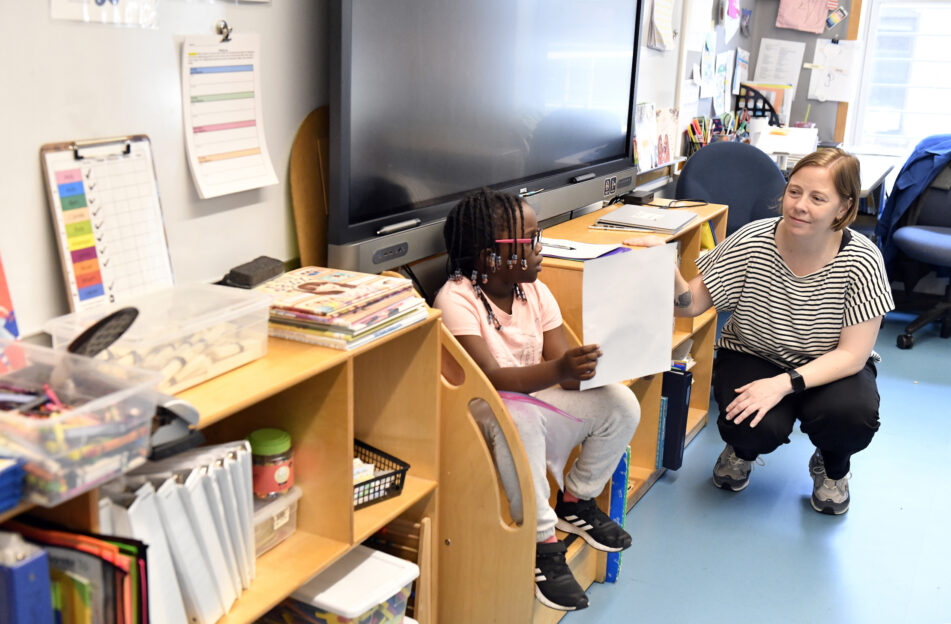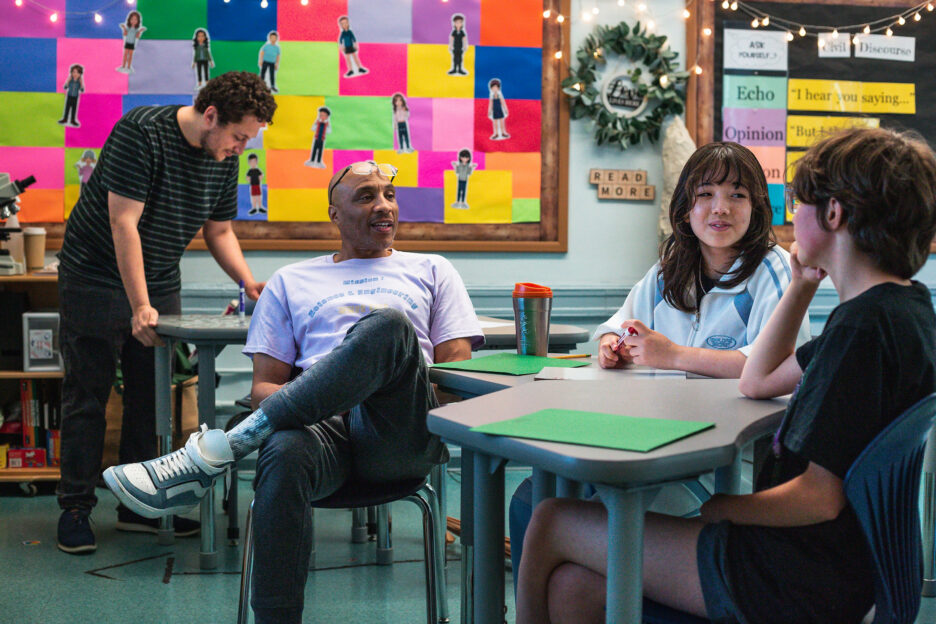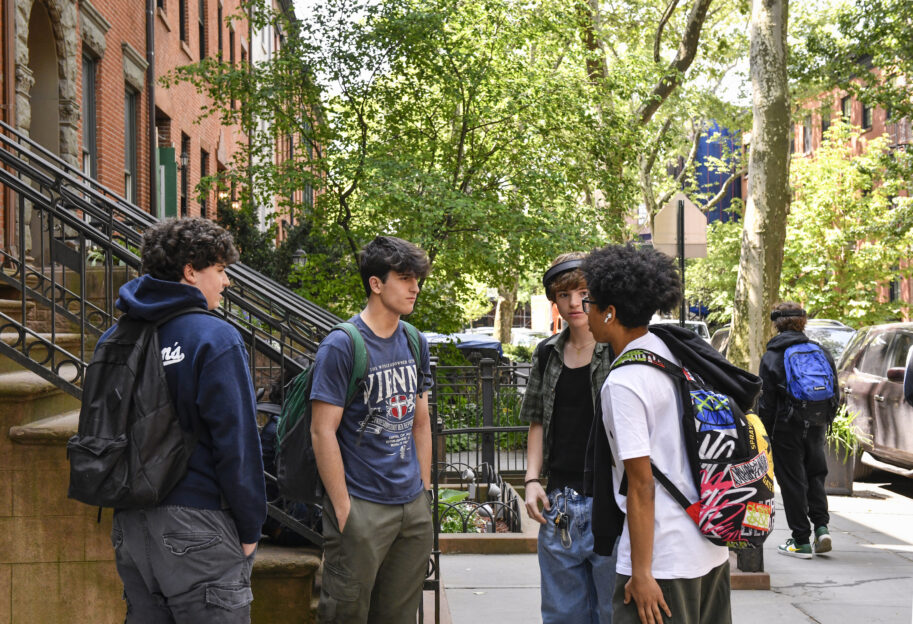Social Skills and Emotional Understanding
Social and emotional readiness is especially important for success in academics and life for students with learning disabilities.
Throughout the day, students learn skills to help them build self-esteem and the confidence to take the risks inherent in learning new information. Our students are developing social skills and emotional understanding in the classroom, at lunch and recess, during Silent Meeting, and in other less-structured group settings. Increasing self-awareness and confidence allows students to be more focused on learning. When they realize that it is okay to make mistakes, they take more risks and stretch themselves academically. As their social skills develop, students form stronger relationships with peers and teachers.
Social Skills and Emotional Understanding in the Lower School
Starting with our youngest classes, social skills and emotional understanding are explicitly taught and integrated into the curriculum. Students learn how to identify, recognize, and regulate emotions, build communication skills, organize their bodies, develop social awareness, and use language to problem-solve. The RULER program (Recognize, Understand, Label, Express, Regulate), created by Dr. Marc Brackett of Yale University, is at the heart of our social and emotional curriculum. Each classroom works together to create a class charter that identifies five to six actions to support one another to establish a supportive, positive climate in the classroom. The oldest lower school students take part in Healthy Choices, a curriculum designed to provide guidance as they face the particular challenges of pre-adolescence and adolescence.

Social Skills and Emotional Understanding in the Middle School
The work students began in the lower school with the RULER program is continued in the middle school. Homeroom is a key piece of the support network for middle school students. Teachers get to know students in their homerooms, and serve as a resource for students throughout the school year. Students begin and end the day in a homeroom class of twelve students with two teachers. Homeroom teachers are also the primary point of contact with parents. The Healthy Choices curriculum teaches students the skills necessary to make good choices as they navigate the challenges that all middle school students face: physical changes, social challenges, growing independence, and peer pressure.

Social Skills and Emotional Understanding in the Upper School
The upper school advisory program anchors students’ social skills and emotional understanding. Every upper school student is assigned a faculty advisor for the duration of the school year. Students begin and end each day in their advisory group of five to eight students. Advisors serve as mentors and guides for students, helping them advocate for support in the areas in which they struggle and for more advanced materials or curricula in areas in which they excel. Advisors make sure all students gets what they need and play a key role in parent communication. Students participate in a Health and Wellness curriculum in which they learn about and discuss a range of topics, including but not limited to nutrition, exercise, tobacco, drugs and alcohol, sexual health, and global health issues. The course also addresses skills such as goal setting, decision making, and problem solving that are important for lifelong well-being.
